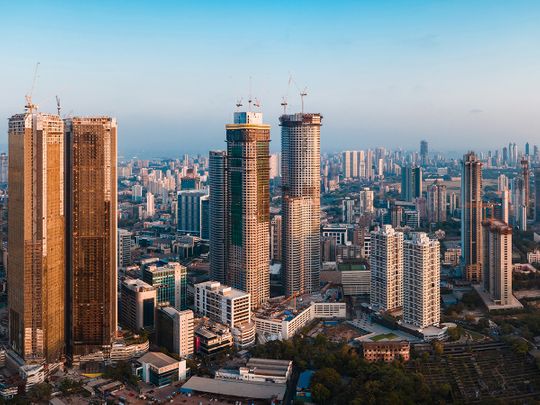India’s GDP data for July-September has shown astounding growth of the construction sector at 13.3 per cent, up from 7.9 per cent in the previous quarter. This indicates a significant housing boom in the country, which has been a major contributing factor to the country’s economic expansion, which grew at a forecast-beating 7.6 per cent. In comparison, Western economies have faced challenges due to high-interest rates and energy prices, while China has been affected by a debt crisis in its property sector.
The housing boom has created millions of jobs and is the result of the construction sector beginning to improve last year and picking up momentum this year. The boom has been driven by rising incomes, a severe housing shortage in major cities, and strong population growth. There is an estimated urban housing shortage of around 19 million units, and that number is expected to double by 2030.
Economist Sunil Sinha from India Ratings and Research stated that the construction sector has significantly contributed to economic growth and is likely to continue playing a crucial role in the coming quarters. Builders are optimistic, with some predicting that the housing market could perform well for the next three to four years.
Home sales in India’s largest cities surged by 36 per cent in the July-September quarter, with a 24 per cent increase in new residential projects being launched. The sales have been driven by first-time buyers and end users, with strong demand from existing homeowners seeking more spacious apartments.
Despite an increase in interest rates, demand for housing in cities like Mumbai has remained strong, with Guardian Real Estate Advisory reporting a jump of over 50 per cent in flat sales compared to a year ago. The demand has been underpinned by salary hikes for workers in big cities.
It is predicted that home prices in India will rise faster than consumer inflation next year, driven by higher earners purchasing newly built luxury residences in cities. Housing demand has also increased in smaller cities, spurred by income increases and migration of workers from rural areas. Additionally, the government is promoting affordable housing by providing subsidies, leading to more construction in smaller towns and cities.
The effect of this housing boom has also been felt in the stock market, with shares in property companies surging. The Nifty realty index has seen a 67 per cent gain for the year, compared to a 12 per cent gain for the blue-chip Nifty 50 index. Prestige Estates Projects, DLF, and Godrej Properties are among the notable gainers, with substantial increases in their stock prices.

I have over 10 years of experience in the field of cryptocurrency and blockchain technology. I have attended numerous conferences and events around the world, and my work has been featured in major publications such as CoinDesk, Bitcoin Magazine, and Yahoo Finance.

